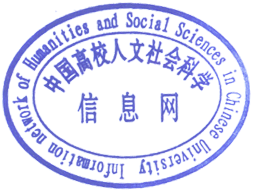父母的受教育程度对子女教育期望的影响
作者:侯倩倩 王思
关 键 词 :教育代际传递 送孩子出国意愿 父母受教育水平 配偶受教育水平学科分类:
摘要/Abstract
在本文中,我们利用2010年、2014年和2016年中国家庭追踪调查数据(CFPS),对父母的受教育程度对他们对子女的教育期望的影响进行研究。我们采用父母是否愿意送孩子出国读书作为因变量来衡量父母对子女受教育的期望,基于OLS,Probit估计,利用配偶的受教育水平作为工具变量进行研究,结果表明,父母的教育水平与他们对孩子教育的期望之间存在正向显著的关系。父母的受教育水平越高他们想要送孩子出国读书的意愿越强,父母接受教育的水平正向影响他们对子女的教育期望。同时,我们发现虽然父亲和母亲的教育水平都会影响他们
In this paper, we employ 2010, 2014 and 2016 China Family Panel Studies (CFPS) survey data to study the influence of parents' education on their children's education from the perspective of educational expectations. We study the intergenerational transmission of education from the perspective that parents' educational level will affect their perception and willingness to invest in their children’s education, thus affecting their children's educational expectations and the educational level of their offspring. To conduct our study, we use parents’ willingness of sending their children study abroad as dependent variable to measure parents’ educational expectation. Our researches are based on a series of OLS, Probit and IV estimations, the results show that there is a positive and significant relationship between parents’ education and their expectations for children's education. The higher the educational level of parents, the stronger their willingness to send their children abroad to study. The higher the educational level of parents, the higher their expectations for their children's education. Parents' expectations for their children's education affect the ways of taking education and thus have an impact on their children's final education. At the same time, we find that although both of father’s education and mother’s education will affect their expectations for their children, the gender differences between father and mother do exist. Compared with father, mother has a greater impact on children's future education.

